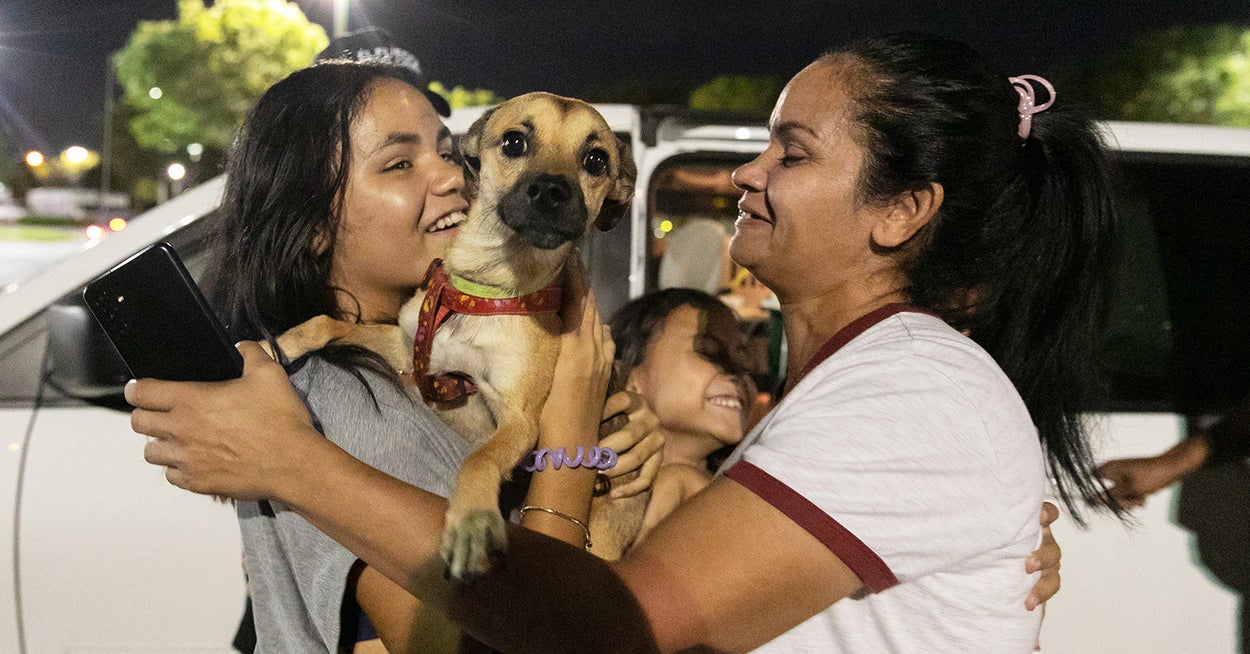

Greisy bought Choco for her oldest daughter, now 14, in Colombia, where they lived for three years after leaving Venezuela. But the family struggled to make a living there, so they decided to try to make it to the US by land with the little money they had.
Greisy and her family embarked on their journey through the Darién Gap with a group of about 300 immigrants who had congregated at a camp on the border with Panama. Greisy said she saw a man holding his daughter around his neck slip on a muddy trail and fall off a steep cliff to their presumed deaths, leaving only the wife and mother behind.
Choco would swim against the current of the rivers they crossed, Greisy said. When the group was unsure of which path to take, they’d follow Choco, assuming he could smell the people who had taken the path before them.
In order to finally get out of the jungle after walking for nearly six days, the group had to climb up a steep and dangerous hill dubbed “La llorona,” or “weeping woman,” named after a ghost that haunts areas near water. Mari, her oldest daughter, walked ahead of her family with Choco, which wasn’t a problem because she never strayed far. But in the struggle to help her get up from a fall in the mud, her husband and other daughter lost sight of Mari.
It was night and they were traveling without flashlights. Greisy wanted to call out for her daughter, but feared attracting the attention of gunmen or predatory animals. Every second seemed like an eternity. Suddenly Choco appeared, and led Greisy’s husband 10 minutes away, where he found Mari safely on the trail.
The family eventually crossed into Mexico on a raft. In the border city of Tapachula, Greisy and her family went to an immigration office to get documents that would allow them to travel through Mexico. But the National Institute of Migration told them they’d have to wait months.
Drained and hopeless, Greisy and her family returned to the shelter they were packed into and tried to figure out their next move. A few days later, they were able to leave with a caravan of immigrants who travel in groups for safety and to increase their chances of evading agents.
When Greisy and her family arrived at the Mexican border city of Piedras Negras, it was dark, and despite seeing people cross the Rio Grande into the US, they decided to wait for daybreak because they had heard the river’s currents were dangerously unpredictable.
With the help of a local who advised them to cross after 9 a.m. when the current was lower, Greisy and the rest of the family crossed the river holding hands in waist-high waters. Greisy’s daughter carried Choco.
They were released from Border Patrol custody about three days later, but without Choco or any information on how to find him. After traveling to Miami to stay with a friend, Greisy immediately went online to look for groups that take in strays in Texas.
One of the seven organizations Greisy messaged was the Buddy Foundation, which quickly let her know that they did in fact have Choco.
“We were all in tears, we couldn’t believe it,” Greisy said.